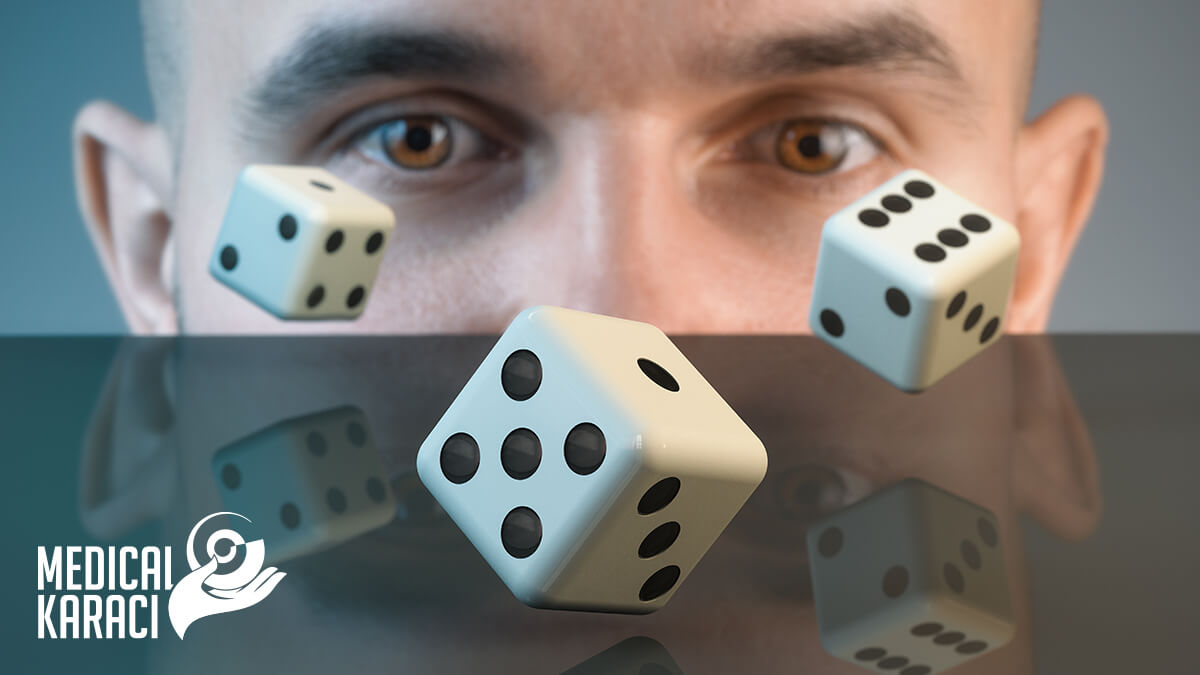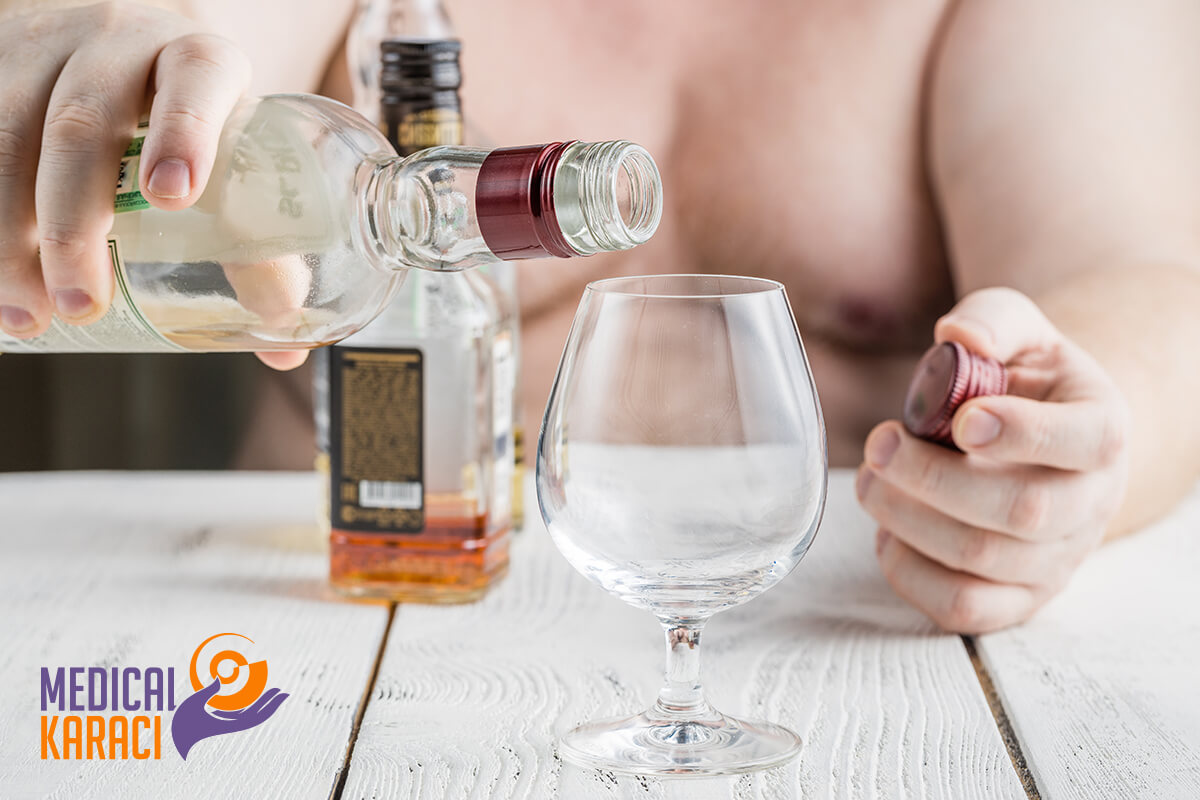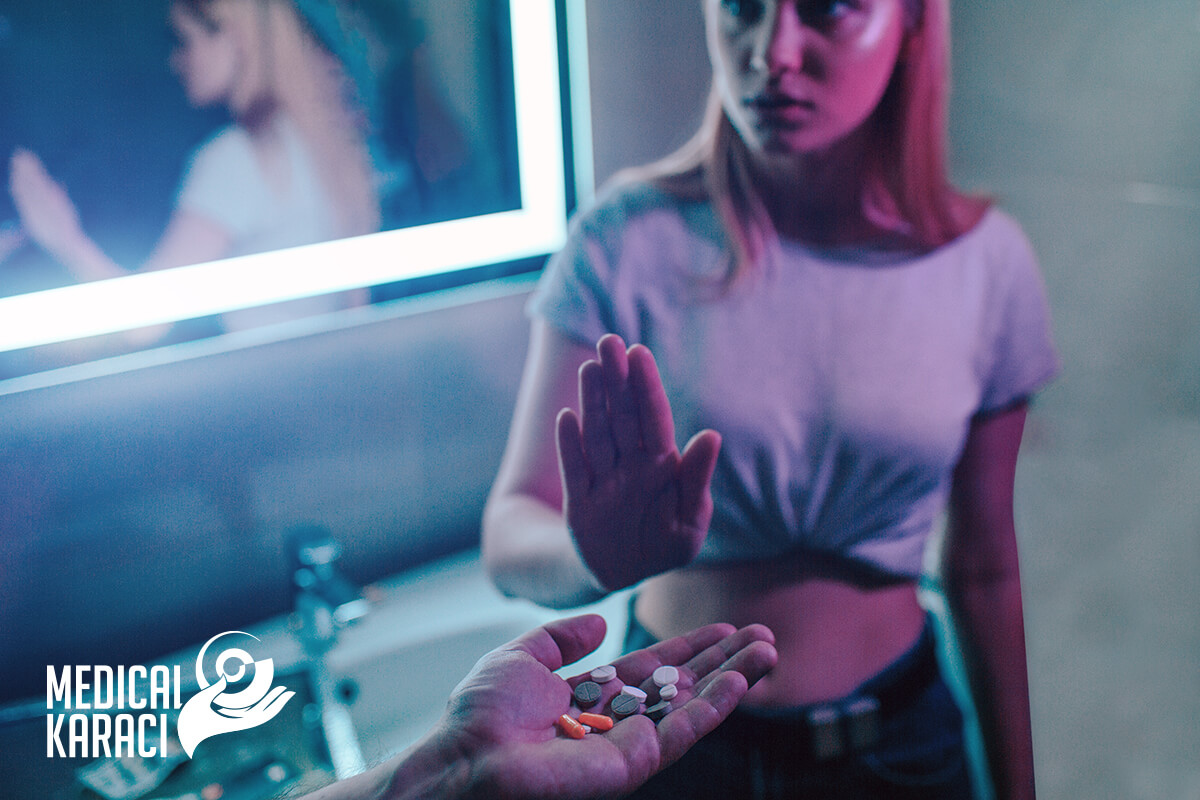Addiction is perceived as a process, stronger than ourselves, where the addict cannot resist his desire and gives in to it.
Addiction can be defined as the physical and psychological inability to stop taking a particular substance, or the inability to stop doing a particular action - over and over again - without the addict realising how it is changing his or her life, and that of those closest to them.
Addictions usually begin with the experience of a drug, substance, substance. This is one form of addiction. The other group, if we call it that, is associated with activities in which the addict cannot stop participating.
In both options, the addict's daily life is encompassed and subordinated to his addiction. Each successive day passes pretty much identically, in an effort to satisfy the hunger for the 'necessary favourite thing'.
When we hear that someone is an addict, or addicted, we usually make an association with a drug, or alcohol for example. The truth is, however, that there are many different forms of addictions that are life-threatening and can be extremely dangerous and even fatal at times.
TYPES OF DEPENDENCIES
We can distinguish dependencies into several categories:
- Addictions to substances. This includes dependencies on:
- Alcohol
- Cigarettes
- Medications - including - sleeping pills, tranquilizers, sedatives
- Cannabis
- Heroin
- Cocaine
- Amphetamines
- Hallucinogenic
- Other
- Behavioral addictions. Here we will point out some addictions in which the addict's behavior leads to addiction. Addiction to:
- Food
- Sex
- Internet
- Video games
- Shopping - Shopping
- Kleptomania
- Betting - Gambling
- Addiction to plastic surgery
- Addiction to risks - risky "sports" associated with a constant search for strong sensations.
ABUSE AND ADDICTION - HOW TO DISTINGUISH THEM:
We can set a conditional boundary by explaining that drug, alcohol, or medication abuse, for example, is already a consequence of actions that define the behavior as unhealthy and dangerous to health. Abuse is still not addiction. Dependence is the long-term inability to stop or moderate use of a substance, or the inability not to repeat a particular action.
Not everyone who abuses food, for example, has an addiction.
Symptoms of addiction, or what are the first signals in the addict's behavior:
Often when we notice an atypical behavioral change in a loved one, it may be directly related to the detrimental effects of a medication, a new favorite activity, and generally be the first signal of a problem.
Here are some changes in addicts that would impress anyone in their inner circle:
- Change in gaze - greatly dilated, or greatly narrowed pupils.
- Change in mood.
- Weight loss or more drastic weight gain.
- Atypical and excessively increased vigor or manifestation of total fatigue.
- Secrecy.
- Difficulty in expressing moments.
- The addict's social life is now focused in another direction.
- Problems in personal life begin to appear.
- Drastic changes in appearance. Neglect the way the addict looks.
- Personal hygiene is neglected and it becomes visible.
- Unexpected and prolonged cough.
- Frequent touching of the nose.
- There may be a change in the addict's sleep pattern. Sleep becomes either very short or quite prolonged. The addict often sleeps during the day, not just at night.
If we notice one or more of the symptoms mentioned, it means that at all costs you should talk to the person to try to find out if there is anything worrying and whether seeking specialist help is necessary.
One of the most important things here is to detect the problem in time.
ADDICTION TREATMENT
The first and probably one of the most important steps is for the addict to want to get treatment, to realise that they have a serious problem.
Often, addictions to certain drugs, for example, are accompanied by psychiatric disorders. These conditions should be monitored and treated in conjunction with addiction.
Addictions are capable of inflicting severe physical and psychological consequences. Starting treatment as early as possible is of paramount importance to prevent entering a 'vicious cycle' from which recovery can be challenging.
We accept that addiction is a disease - a chronic illness that requires systemic care and a multidisciplinary approach.
Stages to recovery:
Acceptance of the problem
The first step in treatment involves the addict understanding and admitting to himself or herself that alcohol, gambling, or drugs have already become a problem. The problem has already been transferred to people in the family, personal life, professional environment. The quality of life is impaired.
Use of alcohol, medication, drugs, etc. may be the result of a problem at school, work, personal relationships, etc.
The treatment options, the therapeutic plan, or generally speaking, the way in which the patient will be treated, depend on many factors.
It is important what the dependence is, how long it has been present, what effect it has on the addict.
Typically, addiction treatment involves multiple approaches, including medication, psychological support, working in groups with similar problems and a range of others.
Detox
Detoxification is the process of cleansing the body of accumulated substance. The goal is to gradually rid the body of accumulated toxic substances.
Getting rid of harmful substances, the body recovers, and slowly the patient moves away from his harmful habits. In detoxification, the goal is for the patient to go through withdrawal, specifically the crises they are going through, stopping the use of the given medication, and for this to become less traumatic for them.
When a patient is addicted to more than one medication, the process is made more difficult and often medication is also administered to help alleviate the 'withdrawal' symptoms.
For some specific addictions, detoxing at home would be dangerous. It would be safer to conduct it under medical supervision, or at the very least, you should let your doctor know what is coming.
There are different types of detoxification, such as:
- Detoxification with ibogaine. Ibogaine has been used for quite a long time in the treatment of addictions. Ibogaine is extracted from plants and through its properties (hallucinogenic), patients fight against their real drug addiction for example. Ibogaine helps with withdrawal by making the addict's experience less traumatic. Ibogaine therapies should also not be conducted without the supervision of a specialist, as it is important to monitor important indicators such as heart rate and pulse.
- Ultra fast detoxification. This is a quite successful method that could significantly speed up the process of cleansing from a medication. Of course, it is necessary to evaluate each patient's case individually and whether this type of detoxification is possible in the patient himself. With this method, what is different is that the patient overcomes most of the negative symptoms in a sleep state. Thus, he does not experience severe discomfort and pain. And already after waking up, what manifests itself as withdrawal symptoms is to a much lesser extent traumatic for him, since the most severe crisis has passed during sleep.
- In alcohol detoxification, the body is cleansed of alcohol. This can be done again during sleep, vitamins and minerals will be introduced into the body through infusion. These important ingredients favor the process and after waking up the patient will feel good. All outward manifestations of the crisis such as trembling, pain and increased nervous tension (due to cessation of alcohol intake) will be greatly reduced after waking.
Behaviour therapy
This is an important stage in the treatment of any addict. This stage is ongoing and will continue well into the future to achieve stability on the road to coping.
Cognitive Behavioural Therapy is where the professional helps patients by trying to get them to think and perceive their addiction in a new way. The goal is to change behaviour, realise the need for change and embrace the idea of a new life free from addiction.
This type of therapy is particularly suited to aid the process.
Sometimes family therapies are also conducted. The specialist supports the addict's family so that the family environment can be improved as well. Various psychological stimuli are applied to encourage the addict to think about the positive side of life, and this distracts him or her from intrusive thoughts of returning to the problem.
Psychotherapy. Role of psychotherapy in addiction treatment.
Here the role of the psychotherapist is particularly important. If the individual approach is applied to the addict, it will mean that the goal is awareness, acceptance and recognition of the problem. The goal here will be for the addict to desire change on his own behalf.
Whereas in group psychotherapy, the idea will be that the whole community is united around a common goal - to deal with the problem by stopping the use of the "harmful" drug.
The methods the therapist will use are different. He or she may try to focus attention on how the addiction has damaged the family relationship, the relationship with the intimate partner, the trust lost over time. Here, the addict will be able to gain insight into the seriousness of his problem and this will help him to make efforts to recover.
THE PATH OF TREATMENT IS LONG.
The truth is that every addiction manages to possess both physically and psychologically those under its control. How long the addiction has been present in the life, and how seriously and permanently it has managed to engage the mind of the addict, will also determine the path to coping and getting rid of it.
It is absolutely certain that there is no place in the world, specialist, or therapy that can make treatment short and easy. Every treatment goes through challenges.
The addict needs to be aware that although he is in good hands where a team of professionals will care for him, knowing how to do it, there will come a time when he will face his own fears alone. Willpower, common sense and the desire for a life free of addictions will play a crucial role.
Anyone can get help, but it's hard to help someone who doesn't want to be helped!
The road to recovery from addiction is long. Don't put off seeking help!
We at ZIC Medical Karaj can help by connecting you with the right specialists!
Hospitals:
Addiction treatment at the International Addiction Treatment Clinic "Dr. Vorobyov"
For more information, you can call +359895770869.






